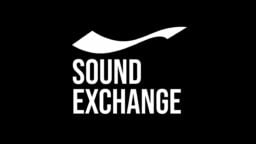On Monday (July 22), we reported that US performance rights organization SoundExchange has filed a lawsuit against US-based internet radio service AccuRadio, Inc. to recover unpaid royalties owed to artists and rightsholders.
The legal action arrived just year after SoundExchange took legal action against satellite streaming service SiriusXM over alleged unpaid royalties.
SoundExchange claims in the lawsuit against AccuRadio, which you can read in full here, that the free internet radio service paid statutory royalties for the recordings it was using until 2016 but that the platform’s payments “slowed and finally stopped” in 2018.
SoundExchange also alleges that it has been negotiating with AccuRadio since 2018 to resolve its outstanding balance, but that AccuRadio has failed to meet the terms to which the parties agreed.
In a statement issued on Monday, SoundExchange President and CEO, Michael Huppe, said that “AccuRadio has directly harmed creators over the years by refusing to pay royalties for the use of protected recordings.”
Huppe added: “Today, SoundExchange is standing up for creators through this lawsuit to protect the value of music and ensure creators are compensated fairly for their work. We hope AccuRadio will immediately reverse course and pay what they owe for the use of the music that sits at the foundation of its service.”
AccuRadio Founder/CEO Kurt Hanson has now responded, claiming in a statement issued to MBW that the “lawsuit against AccuRadio comes as a complete surprise” to the company.
Hanson added: “We have been working with SoundExchange negotiating a fair and reasonable payment plan for several months now, in what we believed was good faith from both parties.
“In fact, we thought our latest proposal was being vetted by SoundExchange and would be adopted by the parties with few modifications.”
Hanson also disputed allegations made in the lawsuit that AccuRadio has “failed to make” a number of royalty payments and claims that the streaming service “has been a consistently reliable [SoundExchange] licensee for the vast majority of the past 20+ years”.
He claims further that AccuRadio has paid SoundExchange over $12.5 million in royalties to date.
Added Hanson: “[SoundExchange’s] implication that AccuRadio hasn’t paid royalties since 2018 is erroneous and fails to note that AccuRadio resumed full payments in early 2021 and continued until very recently.”
SoundExchange noted in its lawsuit that AccuRadio “operates a multichannel internet radio service that provides access to over a thousand pre-developed music channels and access to millions of sound recordings”.
AccuRadio claims to reach almost 1 million unique listeners per month “with an audience of as many as 25,000 simultaneous listeners”.
US copyright law gives digital broadcasters like AccuRadio access to a blanket “statutory” license for the use of recordings, provided they pay a royalty for the music they use.
SoundExchange is the sole entity in the United States designated by the Library of Congress to administer the statutory license specified in Section 114 of the Copyright Act, collect digital performance royalties from licensees, and distribute those royalties to performing artists and rightsholders.
AccuRadio CEO Kurt Hanson claimed in his statement that “sound recording royalty rates for music played on online radio are wildly higher than they are for other forms of radio”.
Added Hanson: “AM/FM stations pay no sound recording royalties for terrestrial broadcasts, and satellite radio is rumored to pay a royalty of about 15% of revenue, yet AccuRadio’s [SoundExchange] royalty obligation in some months has worked out to be as high as 45% to 78% of its revenues.”
Hanson added that the internet radio service “intend[s] to continue to work with [SoundExchange], either directly or via a judge, to enter into a fair and reasonable payment plan for past obligations and to resume current-period payments ASAP.”Music Business Worldwide




